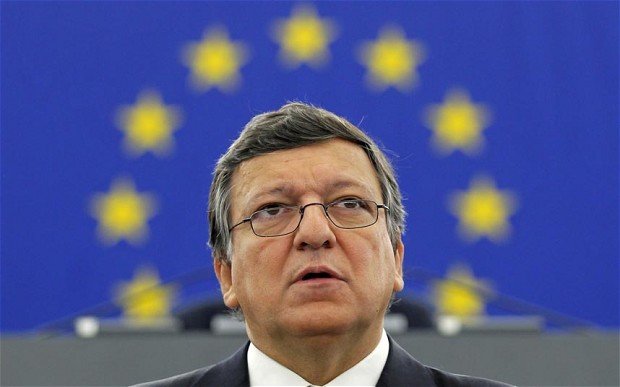
The head of the European Commission has told the European Parliament he wants EU-wide exchange of income data as part of the fight against tax evasion.
Jose Manuel Barroso said he would urge Wednesday’s summit of EU leaders to support automatic exchange of people’s earnings data between tax authorities.
Tax evasion costs EU states 1 trillion euros ($1.3 trillion) a year, more than was spent on healthcare in 2008.
MEPs are expected to call for a Europe-wide blacklist of tax havens.
Pressure is likely to be put on Switzerland to relax banking secrecy amid anger over revelations about Greek and French politicians holding secret Swiss bank accounts.
The debate comes a day after UK Prime Minister David Cameron urged British overseas territories which operate low-tax regimes to “get their house in order” and sign up to international treaties on tax.
Jose Manuel Barroso said he wanted to see the principle of automatic exchange “become the standard at international level as well”.
The US Senate is currently scrutinizing the low global tax payments of Apple Inc and its subsidiaries in the Republic of Ireland in particular.
The main subsidiary, a holding company that includes Apple’s retail stores throughout Europe, has not paid any corporate income tax in the last five years, a Senate memorandum says.
In his speech to the parliament, Jose Manuel Barroso asked: “How can we explain to honest households and businesses who are feeling the squeeze yet still paying their fair share of taxes, that there are other parts of society and enterprise who are deliberately avoiding paying up?”

A trillion euros was, he said, “a huge amount of money to simply let through the net”.
He said he would make a call at Wednesday’s summit of EU leaders for the EU to adopt automatic exchange of income information on 1 January 2015.
EU tax authorities, he pointed out, already automatically exchanged information for income such as employment, pensions and insurance but he was proposing to include “all relevant types of income, such as dividends and capital gains”.
Austria, which has a strong tradition of banking secrecy, would support EU efforts to exchange information on foreign depositors, Chancellor Werner Faymann was quoted as saying by Reuters news agency on Tuesday.
“We won’t be the ones who put on the brakes and block things, and not the ones whose concerns put up blockades,” he said.
He noted that 1 trillion euros was “pretty much exactly the EU budget for the next seven years”.
Europe’s cash-strapped governments cannot afford to lose a single cent in tax revenue, let alone 1 trillion euros a year.
At Tuesday’s debate, non-EU member Switzerland is expected to come under pressure to put in place new rules.
Even top Swiss bankers now admit time is running out for its trademark banking secrecy.
Last week EU finance ministers agreed to start talks with Switzerland, along with Liechtenstein, Monaco, Andorra and San Marino, on swapping bank account information.
Attempts to tighten up on tax evasion follow a furor in Greece over the so-called Lagarde list, containing the names of more than 2,000 Greeks including senior politicians with Swiss bank accounts.
More recently, France’s Socialist government was hit by a scandal, as former Budget Minister Jerome Cahuzac was forced to resign over tax fraud allegations.
He later admitted that he had hidden about 600,000 euros in a Swiss bank account.